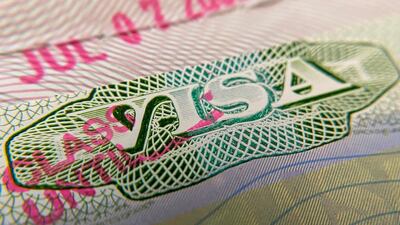The power of the US passport to allow global travel diminished significantly after the EU barred Americans from entering the bloc because of the coronavirus pandemic, according to a consultancy in the UK.
US passports, which six years ago provided holders with the world’s largest number of visa-free travel destinations, are now on a level similar to Uruguay, immigration consultants Henley & Partners said.
Before the temporary restriction was imposed, US passport-holders could travel to 185 countries without visas.
That has dropped to 158 during the pandemic, Henley & Partners said.
“We see an emergence of a new global hierarchy in terms of mobility, with countries that have effectively managed the pandemic taking the lead and countries that have handled it poorly falling behind," chairman Christian Kaelin said.
About 15 million Americans are estimated to travel to Europe each year but the number of Covid-19 cases continue to increase in the world's worst-affected country.
The US has recorded more than 134,000 deaths from the disease.
Henley & Partners produces an annual index that ranks the world’s passports according to the number of destinations holders can visit without having to secure a visa.
The temporary restrictions are not reflected in the current rankings, which places Japan at the top of the list with a score of 191.
Second-placed Singapore would also be affected by the temporary EU travel ban, with its rating falling from 190 to 163.
Last week, the EU announced that 14 countries would be allowed to travel to the 27-nation bloc from July 1 after country-by-country assessments.
The European border list is due to be updated every two weeks.

